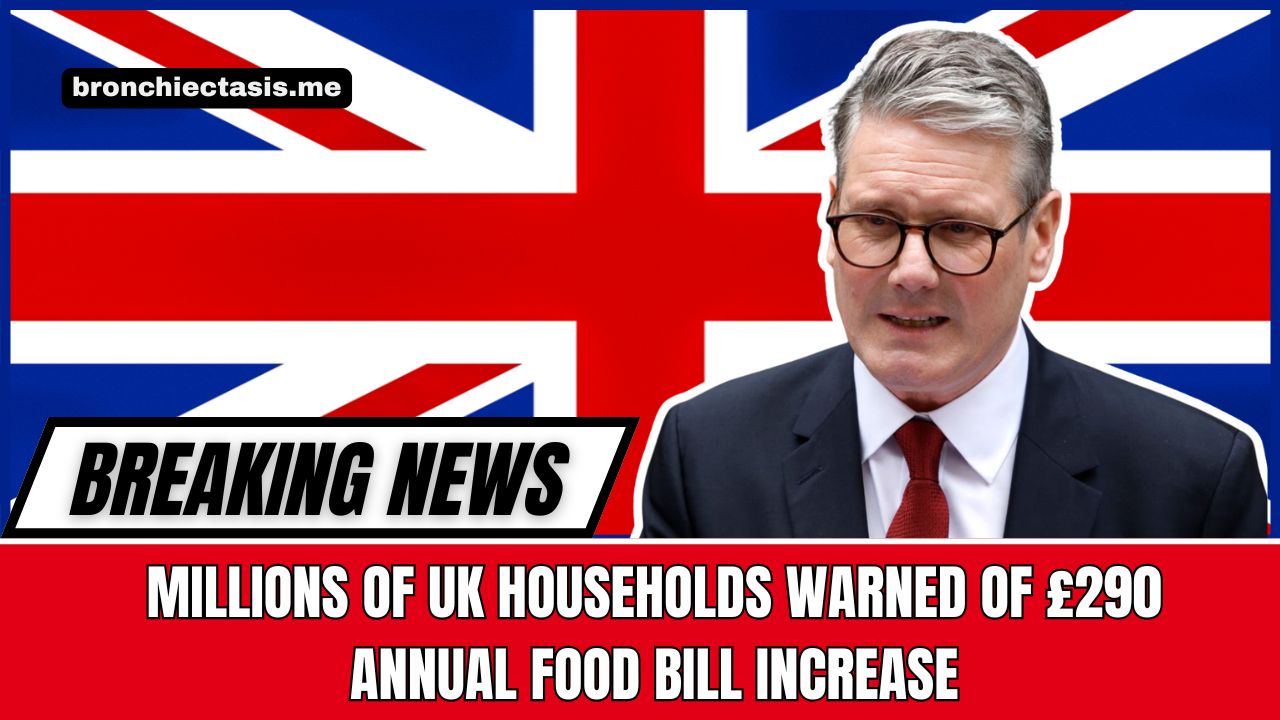UK families are facing a significant squeeze at the supermarket, with the average annual food bill rising by £290 if current trends continue.
This surge results from projected food price inflation escalating to 5.5% by year-end, according to central bank forecasts.
With grocery inflation leading household spending, this increase poses real challenges for many.
What’s Going On with Food Prices?
- The Bank of England projects food price inflation will climb to 5.5% by the end of 2025, notably higher than earlier forecasts.
- This means the average household, currently spending around £5,283 a year on groceries, may see an extra £290 in costs if spending patterns don’t adapt.
At-a-Glance: Food Cost Impact
| Metric | Value |
|---|---|
| Current Average Annual Food Spending | £5,283 |
| Food Price Inflation Expected by 2025 | 5.5% |
| Estimated Annual Food Cost Increase | £290 |
| Main Cost Drivers | Labour, packaging, commodities |
Why Prices Are Increasing
- Rising labour costs, fuelled by employer National Insurance hikes and rising wages, are pushing up food production prices.
- New packaging tax and recycling obligations add further supply-chain expenses that could be passed on to shoppers.
- Global commodity price surges, particularly in key inputs like cattle, cocoa, and coffee, also contribute to rising bills.
How Rising Food Costs Affect Households
- Extra £290 per year may seem small—but for households on tight budgets, every pound matters.
- Households with teenagers can feel the squeeze even more: some families now spend nearly £23,000 annually on food and related costs.
- Many families are already cutting back on essentials, switching to own-brand products, and seeking discount schemes to stretch their budgets.
As food price inflation nears 5.5%, UK households face an added £290 on their annual grocery spend.
With price pressures coming from labour, taxes, and global commodity markets, many families are feeling the pinch.
But smart shopping strategies—such as switching to store brands, using discounts, and planning meals—can help soften the blow.
Awareness and adaptation are key to protecting household budgets in 2025.
FAQs
How will a 5.5% food inflation rate affect the typical family shop?
With average grocery spending at £5,283 annually, this translates to a projected £290 increase per year unless shopping habits change.
What’s behind these rising food prices?
Increases are being driven by higher labour costs, new packaging taxes, and elevated global prices for key commodities like beef and coffee.
How can families cope with rising food bills?
Smart approaches—like using discounts, cooking from scratch, choosing store brands, shopping seasonal produce, and using voucher schemes—can all help reduce costs.

